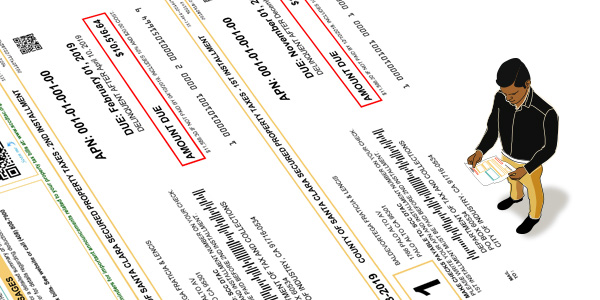How Your Property Taxes Are Calculated
By Kurt Real Estate Nov 23, 2019

If you’re a homeowner or thinking about buying a home, understanding your property taxes is vitally important as this is something you’ll be subject to for a lifetime. Property taxes can vary widely so unraveling how these are calculated can feel like discovering a mystery. Let’s start with the difference between real and personal property.
Real Property vs Personal Property
When referring to your “property tax,” we are referring to your “real property tax.” Real property is defined as the land you own and any property affixed to it. On the other hand, personal property is everything else you own that can be moved. For example, the land your house sits on, your house, garage, permanent storage shed or gazebo (affixed to the ground), these are your real property. Your furniture, clothing, car, boat, RV, etc. are your personal property.
Manufactured homes complicate this because many manufactured homes are not purchased with the land but can be affixed to the land. In this case, when we refer to “property tax” we are not including specially qualified manufactured homes. If you pay a land lease, this does not include you.
Property taxes consist of layers. Most of you know your property taxes are calculated off the value of your home, but did you know that your property taxes consist of several different taxes sandwiched together? It is likely your home is located in several tax jurisdictions such as: state, city, county, school district, fire district, cemetery district, library district. Each of these layers will have different tax rates associated with them.
To make matters even more complex, the value of your home by which your property taxes are calculated, is not the appraised value, but the assessed value.
What is Assessed Value?
Property tax assessments are often one of the most confusing concepts for homeowners. In order to understand how property tax works, you need to understand this fundamentally. In some places, your property’s assessed value and market value may be the same. In others, the assessment is a stated percentage of the market value. These values can be updated yearly, every other year, or when the home is sold. If you meet certain requirements, you might be able to freeze your assessment so your taxes only increase if the rate increases, but even so, many states won’t let you freeze your actual tax rate.
Your property’s assessed value tax rate is supplied to you by your taxing body. We recommend dropping by your local tax assessor’s office to obtain a breakdown of your property taxes explaining your specific tax situation.
What is a Mill Levy?
If you’ve attempted to do any research on your property taxes, you’ve probably seen the term “mill levy” thrown around. A mill levy is another way to describe your tax rate based on the assessed value of your home. One mill is the equivalent of a $1/$1000 of assessed value. The mill rate that determines your tax rate is again determined by your taxing body. So let’s say your property is assessed at $500,000 and your county mill levy is 5, then for every $1000 of assessed value, your bill goes up $5. For your property’s assessed value of $500,000, that’s $2500. It’s important to remember, this is just one layer to your property taxes.
More Questions?…
There is not better resource than your CPA or mortgage broker. They can make more sense out of your tax bill and help project what your property taxes may be upon purchasing a new home. If you’re just looking for a rough estimation, try a property tax calculator.
Join our network
Keep up to date with the latest market trends and opportunities in Orange County.



